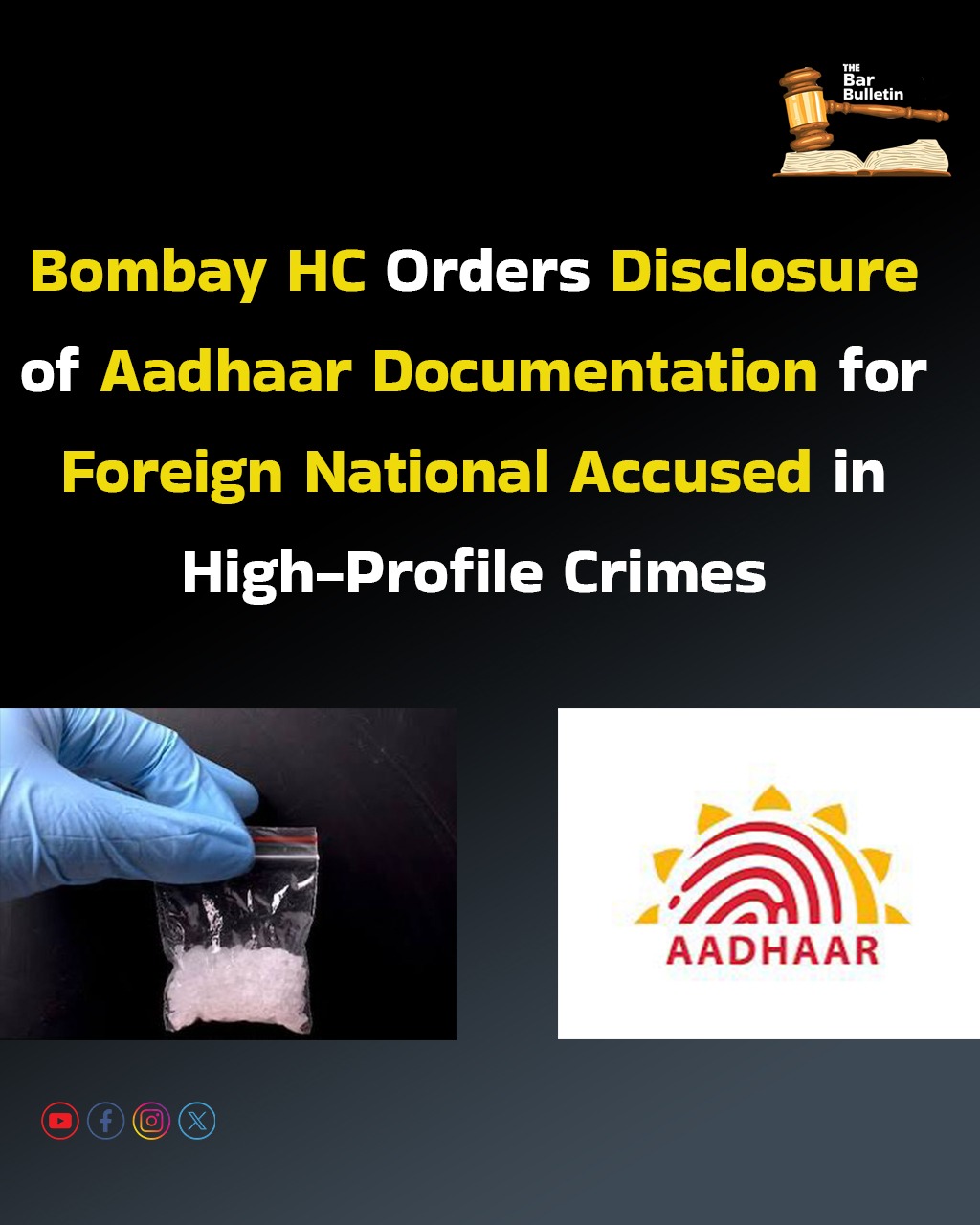The Bombay High Court (Goa Bench) allowed the State’s application, ordering Unique Identification Authority of India (UIDAI) to disclose demographic documentation used by a foreign accused to obtain an Aadhaar card, dismissing privacy objections.
The accused, an Israeli national, was caught possessing narcotics (cocaine, charas) and found staying in Goa without a valid passport or visa. The police discovered he had secured an Aadhaar card despite legal disqualification, raising suspicions of fraudulent acquisition. The accused was a repeat offender, previously convicted for various offences, including those under the Foreigners Act and NDPS Act.
The State of Goa, through Anjuna Police, filed an application under Section 33(1) of the Aadhaar Act, seeking disclosure of identity documents used by an Israeli national accused in serious criminal cases to acquire an Aadhaar card, and details of the enrolment agency. The police sought this to investigate potentially illegal acquisition of residency credentials by a foreigner without valid travel documents.
The State argued that revealing basic application data was essential for national security and law enforcement, stressing that Aadhaar is meant for lawful residents and there were wider public ramifications. The accused (through counsel) contended that any such disclosure would breach his fundamental right to privacy under Article 21, relying on the Puttaswamy judgment[1].
The request for disclosure was initially refused by UIDAI citing privacy and Section 33 restrictions. Following a formal notice, the Court called for documents under sealed cover, and after hearing all parties and perusing the evidence, pronounced final orders.
The Bench comprising Justice Valmiki Menezes noted that Section 33 of the Aadhaar Act allows such disclosure upon judicial order, after a hearing, and distinguished between biometric/core data and basic application information. After reviewing the documents, the Court found that only certificates by a single Gazetted Officer supported the accused’s residency, identity, and birth. There was no independent, personal or privileged documentation.
The Court referenced recent High Court precedents permitting such disclosures in criminal investigation contexts and clarified that privacy rights were not liminal where public safety and statutory investigatory powers were involved.
In result, the Court allowed UIDAI to release to the State the demographic information and supporting documentation used for Aadhaar enrolment, as well as enrolment agency details, within two weeks. The order balanced privacy with investigatory needs by ensuring only specific, limited information was disclosed.
Appearances:
Mr. S.G. Bhobe, Public Prosecutor for the Applicant-State.
Mr. Omkar Bhave, Advocate for Respondent No.1 (UIDAI).
[1] K.S. Puttaswamy (Rtd.) and others vs Union of India and Ors., (2019) 1 SCC 1



